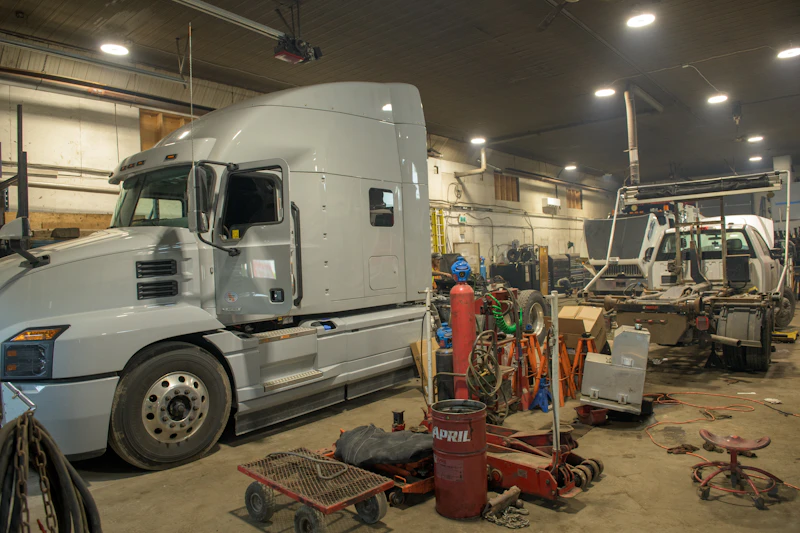Issues With Your Truck Wiring? 5 Tips Of How To Choose The Right Shop For Your Truck Diagnostic

Do you have problems with truck wiring? Then you might not be able to fix them on your own. This is where you need to seek the assistance of a truck repair shop to go ahead with diagnostics. However, finding the right truck repair shop might not be an easy thing to do. That's why we thought of sharing five tips with you on choosing the right shop to proceed with truck diagnostics.
1. Availability of truck wiring services
Since you have a specific problem related to your trucks' wiring, you need to check and see whether truck wiring services are available to you from the truck repair shop. A typical car repair shop isn't suited to deal with a large semi-truck. Look for a service shop specializing in semi-trucks, buses, tractors, recreational trucks, and other heavy-duty trucks. They will be more comfortable managing these high-powered devices and already have the proper equipment. These specialist shops will also have a faster response time.
2. Availability of service
Wiring problems don't always happen between 9 a.m. and 5 p.m. Because they realize you need to get back on the road soon, a high-quality firm will provide services 24 hours a day, seven days a week. Choosing a firm like this will also offer you the peace of mind that comes with knowing that they will be there for you in an emergency.
3. Have a chat with the repair shop
Go to its website or chat with the owner to learn more about the firm. This chat or internet research should, in theory, readily show their enthusiasm for the task. It would be best if you also took advantage of this chance to find out how long they've been in business in your neighborhood. A good service center will have a good history and reputation, which they will desire to keep by providing excellent service.
4. Take a look at credentials
The mechanics at the shop should be qualified by the National Institute for Automotive Service Excellence, especially in medium and heavy-duty trucks. The technician can diagnose and repair diesel engines, drive trains, brakes, suspension, steering, and electrical systems with this accreditation.
5. Don't make a decision based only on price
While the price may influence your ultimate decision, it should never be the main reason. Look for a store that has similar rates to others in the neighborhood. Don't simply go for the lowest option since it will undoubtedly have the poorest service. On the other hand, the costliest does not always imply the best service.
Fixing wiring problems in your truck
Since the earliest magnetos and crude wire harnesses were run through a chassis to supply electricity for lights, instruments, and other truck systems, electrical challenges have been causing truck mechanics terrible nights. With the trucking industry experiencing a rapid technological change based on ultra-fast, very sophisticated electronics, electrical system maintenance is also changing. While truck electronics systems are growing more important for truck uptime, they don't seem to be becoming any simpler to diagnose or fix.
Getting beyond the stumbling blocks
Electronics has long been a source of frustration for fleet maintenance workers who work on trucks. A truck's electrical system has always been its nervous system, to a considerable part. And they've always been tough to work on because of their complexity. Although there have been significant advancements in electronics troubleshooting in recent years, the truth is that most fleets will always face a time-consuming issue with these systems.
As important as they are in our society, Electrical systems do not perform well under the rigorous working conditions that commercial trucks are subjected to. Extremely hot or cold temperatures are unsuitable for electrical systems, wiring, conductors, or connections. They despise the weather, and they also dislike vibrations.
Water, dirt, oil, soot, and other pollutants often penetrate their fragile protective shells, causing them to fail prematurely. Despite numerous attempts to design and deploy wiring that can withstand these harsh operational realities, the fact remains that electronics are a critical yet unbelievably delicate and temperamental functional system on trucks that operate in some of the most brutal and most unforgiving environments on the planet.
Troubleshooting truck wiring problems
The truck's wiring diagram, which includes wire/circuit numbers, connection positions, pin locations, and wire colors, is a valuable source of information for resolving electrical ground issues. The cluster in the most recent truck model displays the DTCs and other details to assist in troubleshooting the issue in more fact.
An electrical fault or mechanical defect, voltage high, voltage low, circuit shorted high, circuit shorted low, data erratic, or communication problem, for example, are all descriptors related to specific fault codes, making diagnosis easy. When searching for that issue, those codes might also assist you in figuring out which function to employ on a digital multimeter.
The issues with the foundation High resistance values between the truck cab and the frame and between the frame and the engine are what I observe the most. Anything that exceeds Three ohms is going to be problematic.
The majority of issues can be solved by elimination. Check the fuses first, then see what the wire is regulating if the fuses are OK. Next, inspect the circuit to ensure that the wires are not broken and in excellent working order. Continue to the beginning of the circuit if this region passes inspection, such as the ECU.
Final words
Take a look at these facts, and you will end up finding the best truck wiring shop available out there. Your truck is like your child, and you wouldn't leave it in a filthy, unkempt, or chaotic environment. When looking for a repair company, ensure that the quality is up to par. The service should be spotless, well-organized, and well-mannered.

.webp)

.webp)